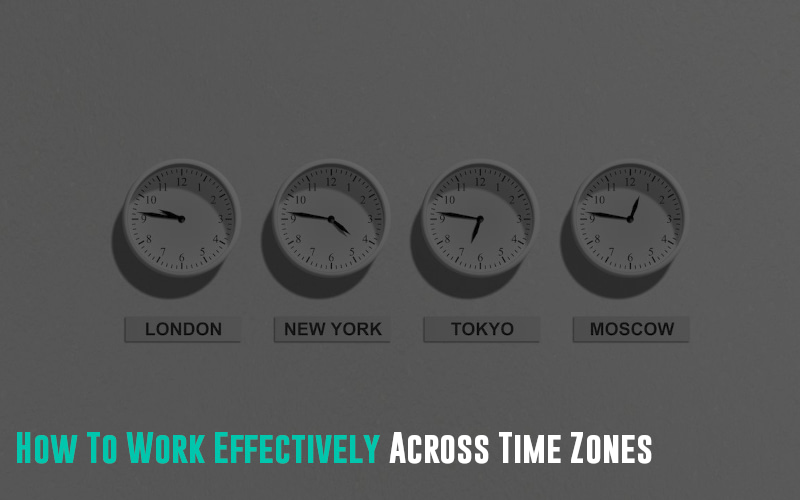I work in the USA as a software engineer, and while I tend to get more vacation time than the average worker in the USA as a software engineer, the country is not known for giving much vacation time to employees. It is a traditional work culture that has done well enough up to this point. However, it is not inviting to see and travel the world with limited vacation time. The trick is that you don’t always need vacation time to travel the world. You can travel more often if you learn to work effectively across time zones. (Given you have a flexible or remote work environment).
There is much more to practical work and being an effective employee than simply being available in the office. Suppose you understand the actual value you provide and can provide that remotely. Then there is nothing holding you back! Here are some tips and tricks that have enabled me to be highly effective while still seeing the world.
Featured Image Credit
Continue to work in the time that your team works

Now, I don’t urge that travel is impossible if you can’t effectively meet your team’s standard business operating hours. While ideal, it is not always necessary. You can still get away with a temporary departure working in a different time zone, but I advise specific conditions for you to succeed. First, you must be very efficient in working independently and being autonomous. You must have your team’s trust that you are a part of the team and work effectively under normal conditions, and you must help define the beginning and end of your journey with your team so the team can plan for it. I have not seen this arrangement work out when these conditions are not met well.
Communicate effectively across time zones

Working remotely takes trust between people, and you want to maintain that trust, not shatter it over the long haul. It would help if you felt confident in keeping your team in the loop with your work. Do not go into a black box and assume things will be okay. Let your manager and co-workers know when your work will be done and if any impediments pop up along your journey. If others ask questions, ensure you help them out. If the same questions are asked, write documentation to automate the questions.
Be autonomous across time zones

I cannot stress. If you travel and work, it will be tiring and more stressful than usual. With that said, road bumps will happen along the way. I recommend embarking on this journey for someone mature with their team, works tooling, and can learn independently with available resources to keep the business moving forward. Be committed to that and spend the effort to try and learn and grow to unblock yourself. Give a team a good reason to regret allowing you to travel remotely, such as failing to continue producing, and they definitely will.
Plan your day around goals
Working without constraints can easily slip on team goals and schedules. Give yourself defined goals each day and work to meet them as soon as possible. Give yourself the needed focus time to do so. Work in an environment that allows that focus to be your hotel room, coffee shop, or rented office. If you are just as effective (or near it) on travel as you usually are, there is little business justification to use against you for the value you produce.
Make sure you understand the laws around remote work

Remote work internationally is generally not prohibited. However, if you stay out of a country or in another country long enough, then questions pop up on who should be able to tax you. This becomes a headache for most employers, and there is legitimate international law might pop up to give you a headache. Make sure you study the business policy and country laws of where you live and where you are traveling.
In conclusion, world travel is very approachable, and you can live your dream working with your laptop on the beach in no time (although I’ve found this doesn’t work well due to the sun!) So heed my words, and you’ll be exploring the world in no time despite your limited vacation time!

